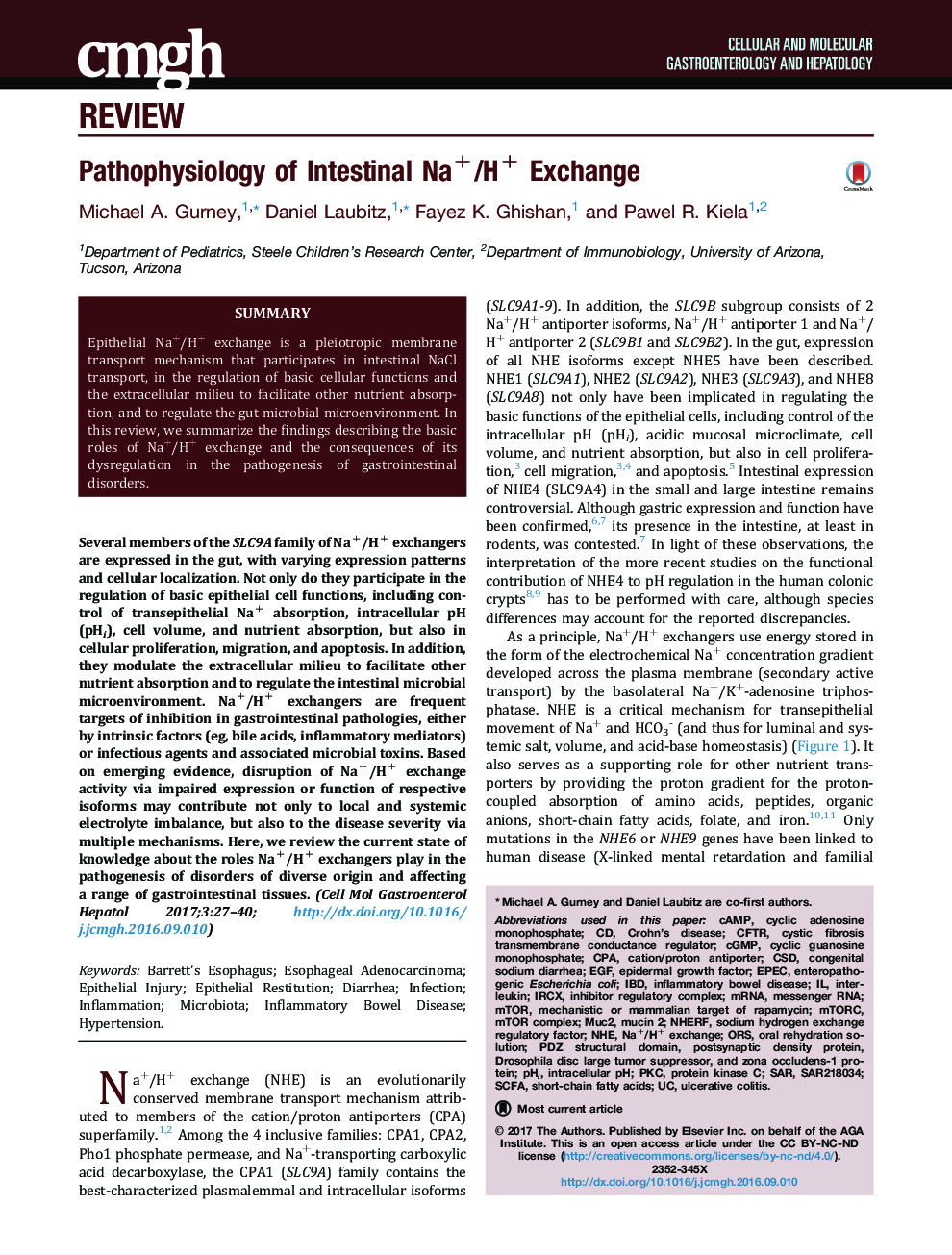| Article ID | Journal | Published Year | Pages | File Type |
|---|---|---|---|---|
| 5517247 | CMGH Cellular and Molecular Gastroenterology and Hepatology | 2017 | 14 Pages |
Several members of the SLC9A family of Na+/H+ exchangers are expressed in the gut, with varying expression patterns and cellular localization. Not only do they participate in the regulation of basic epithelial cell functions, including control of transepithelial Na+ absorption, intracellular pH (pHi), cell volume, and nutrient absorption, but also in cellular proliferation, migration, and apoptosis. In addition, they modulate the extracellular milieu to facilitate other nutrient absorption and to regulate the intestinal microbial microenvironment. Na+/H+ exchangers are frequent targets of inhibition in gastrointestinal pathologies, either by intrinsic factors (eg, bile acids, inflammatory mediators) or infectious agents and associated microbial toxins. Based on emerging evidence, disruption of Na+/H+ exchange activity via impaired expression or function of respective isoforms may contribute not only to local and systemic electrolyte imbalance, but also to the disease severity via multiple mechanisms. Here, we review the current state of knowledge about the roles Na+/H+ exchangers play in the pathogenesis of disorders of diverse origin and affecting a range of gastrointestinal tissues.
